A few months ago I had the honour to read a story of mine publicly at an undergraduate conference. The reading went well and after a hearty St. Patrick's Day celebration it would have escaped my memory besides a short note on my CV. However, a friend, and now my co-editor on our zine aptly named "What Killed Keats," enjoyed the story and encouraged me to show it to our philosophy professor. My professor promised nothing beyond reading it, so I was surprised when I got an email a month or two later describing the flaws in the story in a laborious critique one would expect to see in a negative review. The critique differed from most feedback in that it was more like in-depth criticism and it was exclusively and bitingly negative except for one line at the end to encourage me to continue writing. Jan Zwicky claims in her essay “The Ethics of the Negative Review” that a negative review is a “Squelching of self and creativity,” but for me my first semblance of a negative review was a grand inspirational moment, a first milestone to becoming a writer. Someone had taken my work to be worth criticizing on a higher level than mere feedback and deemed it to be worth spending the time to criticize. That was a great compliment.

No one appreciates it when someone decides that they know what is best for them. Gillian Jerome states that
CWILA supports stronger critical awareness of marginalized voices when a young writer's voice has not been heard. From a young writer's perspective, Zwicky's essay is written in a maternal fashion, suggesting that she has to save writers from the negative reviewer. She claims negative reviews have prevented writers from publishing when she says
that poets are sensitive to their environment. She attempts to speak for young writers when young writers were never included in the conversation. She wants to protect young writers from negative reviewers like a parent protects children from a bully, when all I'm saying is that it is more complicated. I acknowledge that I write from a male point of view on criticism and I don't want to attack Zwicky; I only take issue with Zwicky attempting to speak for me.
I have found that a young writer has to fight hard for any useful criticism, and any movement against negative criticism is deeply worrying for me. I began writing at sixteen and I've run a gauntlet of workshops, so I know firsthand that it is hard to give—and almost impossible to find—good criticism. Praise can be found easily and in my experience has never helped me improve my writing. I write with Queer characters predominantly, so in my experience, positive criticism is more often than not patronizing, while negative criticism shows that someone takes what I have to say seriously. I look to negative reviews to learn what the reviewer thinks is stale or overdone and what doesn't work in a piece. Therefore I have the most to lose under the arguments of Zwicky's essay. I agree that criticism that focuses on personal attacks and so-called “scorched earth tactics” is not helpful for anyone, but Zwicky never defines what she means by a negative review and this makes me anxious.
To be frank, Zwicky oversimplifies publishing by casting the writer as a hero who has to persevere amid criticism. I always look back to a workshop I took in high school with the then UNB writer-in-residence Gerard Beirne. One of my friends was a talented writer who had a completed novel manuscript and had asked Gerard for advice. After working with her for several months, he suggested to her that she should delay publishing when she had been convinced that she had to publish. His advice to everyone is that it takes a long time to have work that's worth publishing and that you should never rush into publishing. He has always used solid examples of writers whose work has progressed and now look back on their early work with embarrassment, even if it is well-written. However, other writers thought that she should just publish if she had something that was worth publishing. Both views were still valid, and although I personally agree with Gerry, the conflict shows how one view of publishing cannot know what's best for a young writer.
All I ask is for established writers to keep in mind that they can't know what's best for young writers. I appreciate the amazing level of effort and resources put towards young writers, but I do think there are problems. Technological advances such as e-publishing have been touted endlessly as a great resource for young writers, but the negatives are always glossed over. Although some of the new technology is amazing and has potential, I don't think that the next generation of young writers is better off. If a young writer publishes something online, then it will never disappear. Imagine the nightmare for a writer to become successful only to have their writing from when they were fifteen emerge. It is infuriating to see articles on e-publishing act as if they have discovered self-publishing when zines and other non-traditional forms of media have always existed. Publishing in a zine was never given as an option or even discussed in any of the writing and publishing workshops I took, but zines are a valuable resource for young writers. Zines are disposable and limited; they can be distributed to those interested in writing and can be kept for yourself, not for the whole world to see. My father still has a few of his first self-published chapbooks and looks on them fondly. Zines can give young writers an independent voice to speak for themselves, but it is another matter if anyone will listen.
Kelly Jarman
Fall 2011/Winter 2012 Fiddlehead Intern

 No one appreciates it when someone decides that they know what is best for them. Gillian Jerome states that CWILA supports stronger critical awareness of marginalized voices when a young writer's voice has not been heard. From a young writer's perspective, Zwicky's essay is written in a maternal fashion, suggesting that she has to save writers from the negative reviewer. She claims negative reviews have prevented writers from publishing when she says that poets are sensitive to their environment. She attempts to speak for young writers when young writers were never included in the conversation. She wants to protect young writers from negative reviewers like a parent protects children from a bully, when all I'm saying is that it is more complicated. I acknowledge that I write from a male point of view on criticism and I don't want to attack Zwicky; I only take issue with Zwicky attempting to speak for me.
No one appreciates it when someone decides that they know what is best for them. Gillian Jerome states that CWILA supports stronger critical awareness of marginalized voices when a young writer's voice has not been heard. From a young writer's perspective, Zwicky's essay is written in a maternal fashion, suggesting that she has to save writers from the negative reviewer. She claims negative reviews have prevented writers from publishing when she says that poets are sensitive to their environment. She attempts to speak for young writers when young writers were never included in the conversation. She wants to protect young writers from negative reviewers like a parent protects children from a bully, when all I'm saying is that it is more complicated. I acknowledge that I write from a male point of view on criticism and I don't want to attack Zwicky; I only take issue with Zwicky attempting to speak for me.
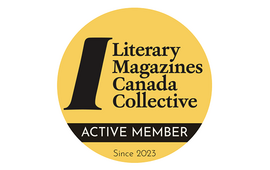

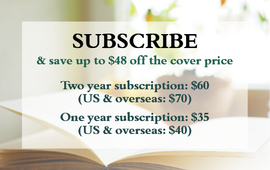
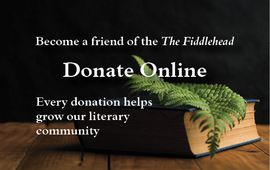
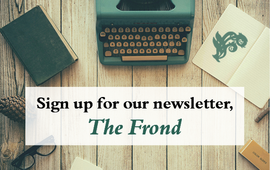
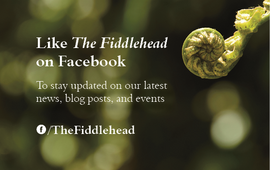




Add new comment